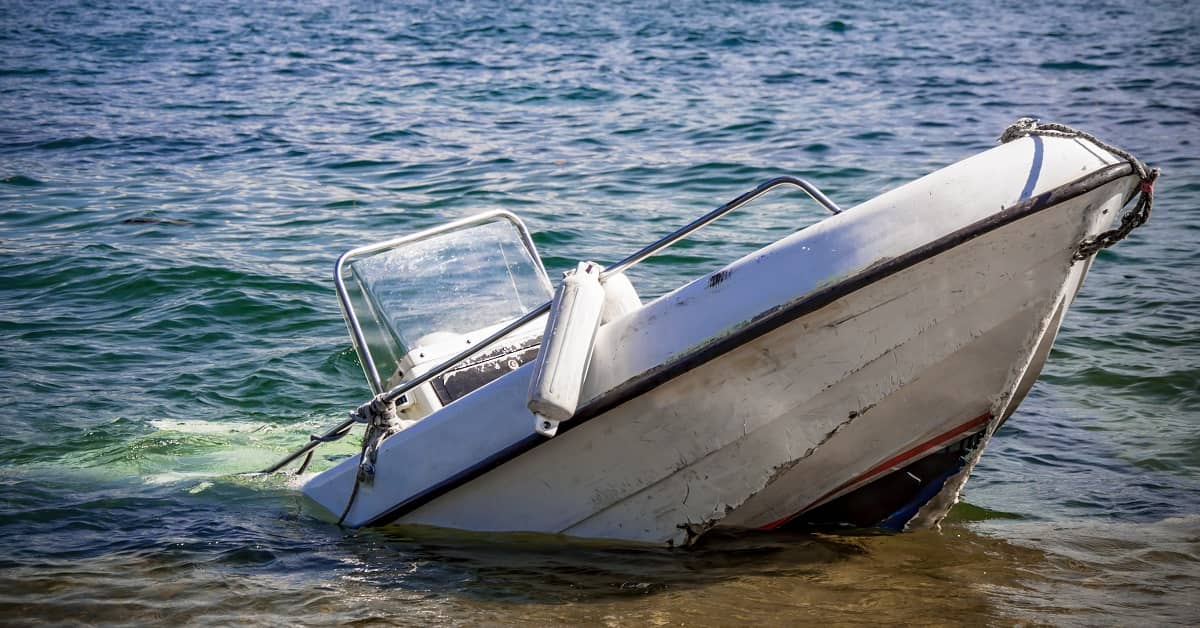
Many different situations can be classified as maritime accidents. Depending on the circumstances, claims may stem from events such as:
What you should do after a maritime accident depends very much on whether you were injured as a passenger or as a worker. Regardless of this status, however, maritime workers and passengers alike should never underestimate the importance of hiring an attorney if they have been injured at sea.
Patrick Daniel Law has extensive experience with admiralty and maritime law. Contact our maritime accident lawyer today for a free review of your case.
Depending on the type of maritime work you do, you may have several options for recovering compensation:
Filing suit for a maritime accident under the Jones Act is very different from what longshore and harbor workers have to do to file for workers’ comp under the LHWCA. However, some of the initial steps are broadly the same:
Your health should be your first priority after any workplace accident. For workers out to sea, this may involve getting first aid until the vessel arrives at port, followed by transportation to the hospital. In emergency situations, the U.S. Coast Guard may be able to render assistance to a worker who needs urgent care beyond what can be provided on the ship.
If you are working on the docks, at a pier, or another workplace that adjoins navigable waters, you should call 911 as soon as possible if you suffer serious or life-threatening injuries. In the event of a less-serious injury, you can transport yourself to the emergency room or have a coworker or supervisor take you.
Both the Jones Act and the LHWCA have very stringent requirements for reporting an on-the-job accident or injury:
If possible, you should report your injury as soon as you can. Doing so reduces the likelihood that your employer and/or the insurance carrier will dispute your claim.
The success of your lawsuit under the Jones Act is contingent on your ability to prove (a) that your employer was at fault for your injuries and (b) these injuries resulted in damages. With this in mind, you need strong evidence of your employer’s negligence and the effects thereof.
Potential evidence in your claim may include:
Evidence of an employer’s negligence or wrongdoing typically doesn’t last long on a seafaring vessel. It is crucial to collect as much proof as you can both while you are at sea and once you are back on dry land.
The need for longshore and harbor workers to collect this same type of evidence is less urgent, as the LHWCA is similar to other state and federal workers’ compensation programs in that it operates on a no-fault basis. However, documentation of the conditions that led to the accident and your injuries can be helpful for establishing that your claim is work-related and that you are therefore entitled to benefits.
No matter your occupation, it is crucial to contact a maritime accident attorney as soon as possible before proceeding with your claim. This is especially true for seamen, who often face a number of obstacles before they can obtain fair compensation.
In spite of the no-fault scheme, longshore and harbor workers are not guaranteed benefits. A knowledgeable lawyer can help you file a claim, dispute any denials, and represent you if your case goes to court. Your attorney can also advise you of additional legal options you may have if a negligent third party contributed to the accident.
Most boating accidents occur in waters governed by the State of Texas. As such, the majority of boat accident claims fall under the purview of state personal injury law. However, maritime law may apply if the accident occurs (a) 9 miles off the Gulf Coast or (b) in areas designated as “navigable waters” by the federal government.
For the passengers of cruise ships, pleasure boats, and other passenger vessels, the procedure for filing an accident claim is the same whether state or maritime law is in force. Steps you should take after a maritime accident include:
If someone is injured on the water, the first priority is to get to shore as soon and as safely as possible. This can be achieved by the person or crew in control of the boat, with the help of another vessel, and/or through the assistance of local law enforcement or the Coast Guard.
Passengers on cruise ships may find themselves in the unenviable position of having to receive care from the medical staff on board the ship. Cruise ship doctors have limited supplies and (in some cases) minimal training in emergency medicine, making the sick bay a far from ideal place for treatment of a serious injury. However, even basic medical care is better than no care at all, and the staff and crew can work out how to get you to a hospital on land.
If you are injured in a maritime accident closer to the shore, call 911 or have someone in your party do the same. Paramedics will take you to the emergency room promptly for treatment of your injuries.
While you are waiting to get assistance on shore, take the time to gather information that may be pertinent to your maritime accident claim. Some of the steps you should take include:
You should not try to move to perform these activities if your injuries render you immobile. Instead, ask a trustworthy individual to take these steps for you. If nobody can offer you assistance, make a mental note of as many details as you can and seek legal counsel as soon as possible.
Maritime accident claims are complicated. It is essential to hire an experienced lawyer who can build a strong case on your behalf and pursue the compensation you deserve.
Hiring an attorney has a number of benefits, one of the most important of which is the confidence that your claim will be filed with the correct court. You have a limited time to seek compensation for your injuries; filing suit in state court when a federal court should hear your case (or vice versa) wastes valuable time.
Whether you were working at sea or you were a passenger on a vessel, an accident on the water can have a major impact on your life. Passengers and workers alike are often unsure where to turn after an accident. Furthermore, the complexities of maritime law can make it difficult for injury victims and their families to recover damages after an accident.
Attorney Patrick Daniel is recognized as one of America’s Top 100 High Stakes Litigators in the area of maritime law. Having practiced law on the Gulf Coast for 15 years and counting, he recognizes the importance of helping those who make their living and spend their leisure time on the water achieve the compensation they deserve for serious injuries.
Please contact Patrick Daniel Law at (713) 999-6666 today for a free case evaluation. Our maritime accident lawyer serves clients throughout the Houston area, all of Texas, nationwide, and even internationally.
 Top Truck Accident Lawyer in Pasadena
Top Truck Accident Lawyer in Pasadena Best of The Best Attorneys
Best of The Best Attorneys Best of the Best Houston Chronicle 2021
Best of the Best Houston Chronicle 2021 Best Motorcycle Accident Lawyers in Houston 2021
Best Motorcycle Accident Lawyers in Houston 2021 American Association for Justice Member
American Association for Justice Member The National Trial Lawyers 2016 – (Top 40 under 40)
The National Trial Lawyers 2016 – (Top 40 under 40) Multi-Million Dollar Advocates Forum 2016 (Top Trial Lawyer)
Multi-Million Dollar Advocates Forum 2016 (Top Trial Lawyer) Million Dollar Advocates Forum 2019 (Top Trial Lawyer)
Million Dollar Advocates Forum 2019 (Top Trial Lawyer) America’s Top 100 Attorneys 2020 (High Stake Litigators)
America’s Top 100 Attorneys 2020 (High Stake Litigators) Lawyers of Distinction 2019, 2020 (Recognizing Excellence in Personal Injury)
Lawyers of Distinction 2019, 2020 (Recognizing Excellence in Personal Injury) American Institute of Personal Injury Attorneys 2020 (Top 10 Best Attorneys – Client Satisfaction)
American Institute of Personal Injury Attorneys 2020 (Top 10 Best Attorneys – Client Satisfaction) American Institute of Legal Advocates 2020 (Membership)
American Institute of Legal Advocates 2020 (Membership) Association of American Trial Lawyers 2018 - Top 100 Award recognizing excellence in personal injury law
Association of American Trial Lawyers 2018 - Top 100 Award recognizing excellence in personal injury law American Institute of Legal Professionals 2020 (Lawyer of the Year)
American Institute of Legal Professionals 2020 (Lawyer of the Year) Lead Counsel Verified Personal Injury 2020
Lead Counsel Verified Personal Injury 2020 The Houston Business Journal 2021
The Houston Business Journal 2021